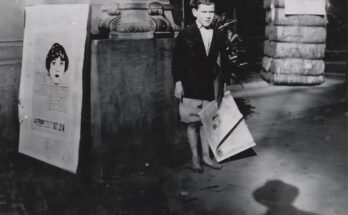In the bleak year of 1935, America found itself in the crushing grip of the Great Depression. Across the nation, factories were silent, fields lay barren, and families huddled together in the chill of uncertainty. Jobs were scarce, food was scarcer, and hope had become a fading ember. But tucked away in the rugged folds of the Appalachian Mountains, a unique kind of salvation was quietly unfolding. It came not in the form of relief checks or breadlines, but in something far more enduring—words.
They were called the Book Women. More than librarians, they were warriors of the written word—resilient, unyielding, and fiercely committed. These were not the prim, desk-bound librarians of city life. These women saddled up mules and horses, braving the treacherous backwoods of Kentucky and beyond, to deliver books to the forgotten corners of America. Each week, they rode hundreds of miles through rain-soaked trails, snowy hollows, and sunbaked ridges. Their packs were filled not with gold or grain, but with stories: novels, recipe books, newspapers, almanacs, and poetry.
They rode for the children with bare feet and bright eyes, sitting on collapsing porches, waiting for stories that could transport them far from their troubles. They rode for the weary wives of coal miners, clinging to hope and hand-me-down cookbooks scribbled with secrets. They rode for elderly farmers hunched over their fields, studying weather charts in old almanacs, dreaming of better harvests and brighter days. Each delivery was a lifeline—a spark of curiosity, connection, and courage.
Among these heroines was Mary Carson, the daughter of a coal miner. Her companion was a stubborn mule named Old Joe, and together they crossed flood-swollen creeks and windswept ridgelines. Once, caught in a sudden flash flood, Mary clutched Joe’s mane with one hand while keeping her saddlebags of books hoisted high above the water with the other. Soaked and shivering, she whispered to her mule, “We’ve got deliveries to make.” To Mary, and many like her, giving up was never an option.
The Pack Horse Library Project, as it was officially known, was part of President Roosevelt’s New Deal programs, launched to bring education and enlightenment to rural Americans who had long lived in isolation. With donated books, scrapbooks, and even hand-copied texts, the Book Women built mobile libraries—sometimes no more than a few saddlebags or a satchel—and spread knowledge like seeds across the impoverished landscape. Their impact was not measured in money, but in minds opened and spirits lifted.
By 1943, the rising demands of World War II pulled funding and focus elsewhere. The program was quietly shut down. But in its short lifespan, the Book Women had achieved something extraordinary: over 100,000 books delivered to nearly as many readers. They stitched together communities with shared stories and reminded the forgotten that they were still part of a larger world—one where imagination could thrive even when everything else seemed to wither.
Their legacy remains a testament to the unbreakable human spirit. These women did more than deliver books; they brought light into places where despair threatened to take root. In an era defined by scarcity, they gave generously. In a time of silence, they brought voices. In the shadow of despair, they carried the flame of knowledge.
Let history always remember the Book Women—not as a footnote, but as a force. While the Great Depression tried to steal the soul of a nation, these horseback librarians proved that even in the harshest times, stories matter. Words have power. And sometimes, the bravest thing you can do is saddle up and ride into the storm—with a bag full of books and a heart full of hope.


